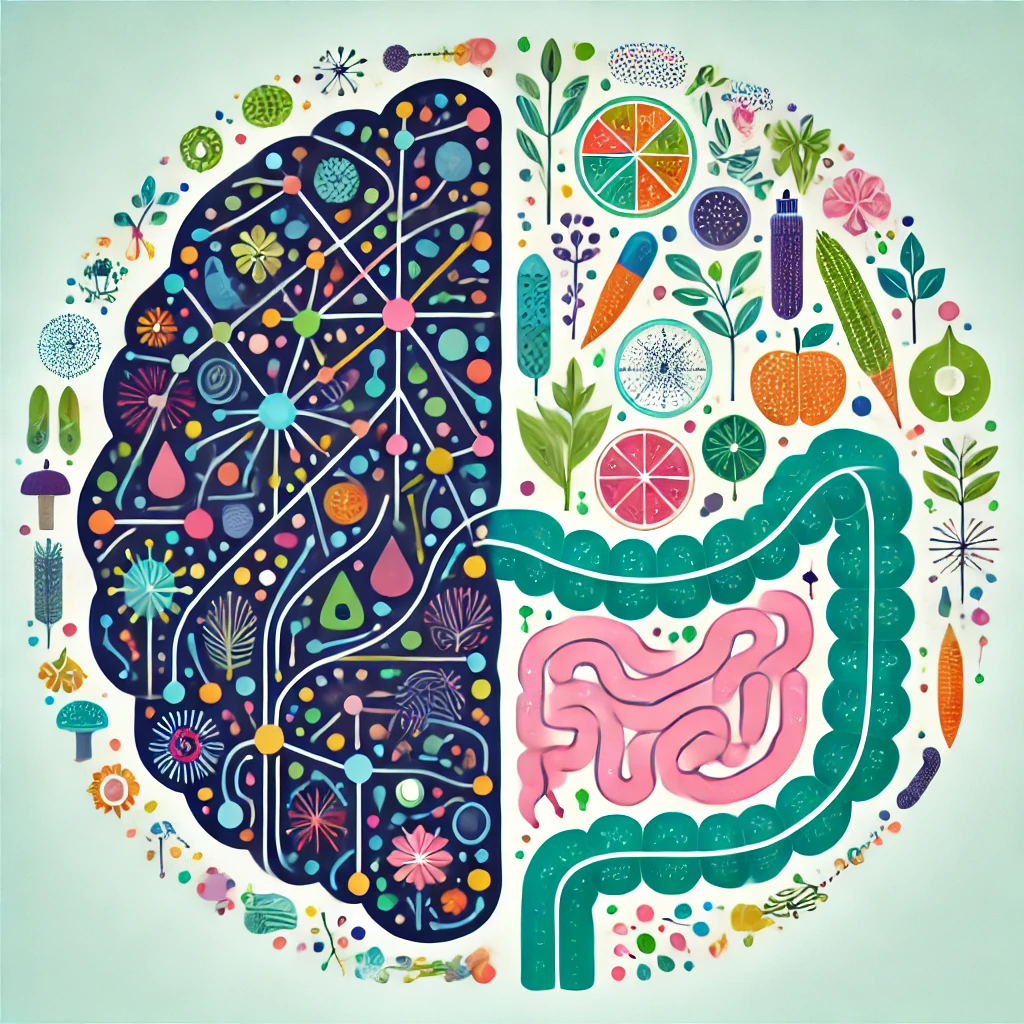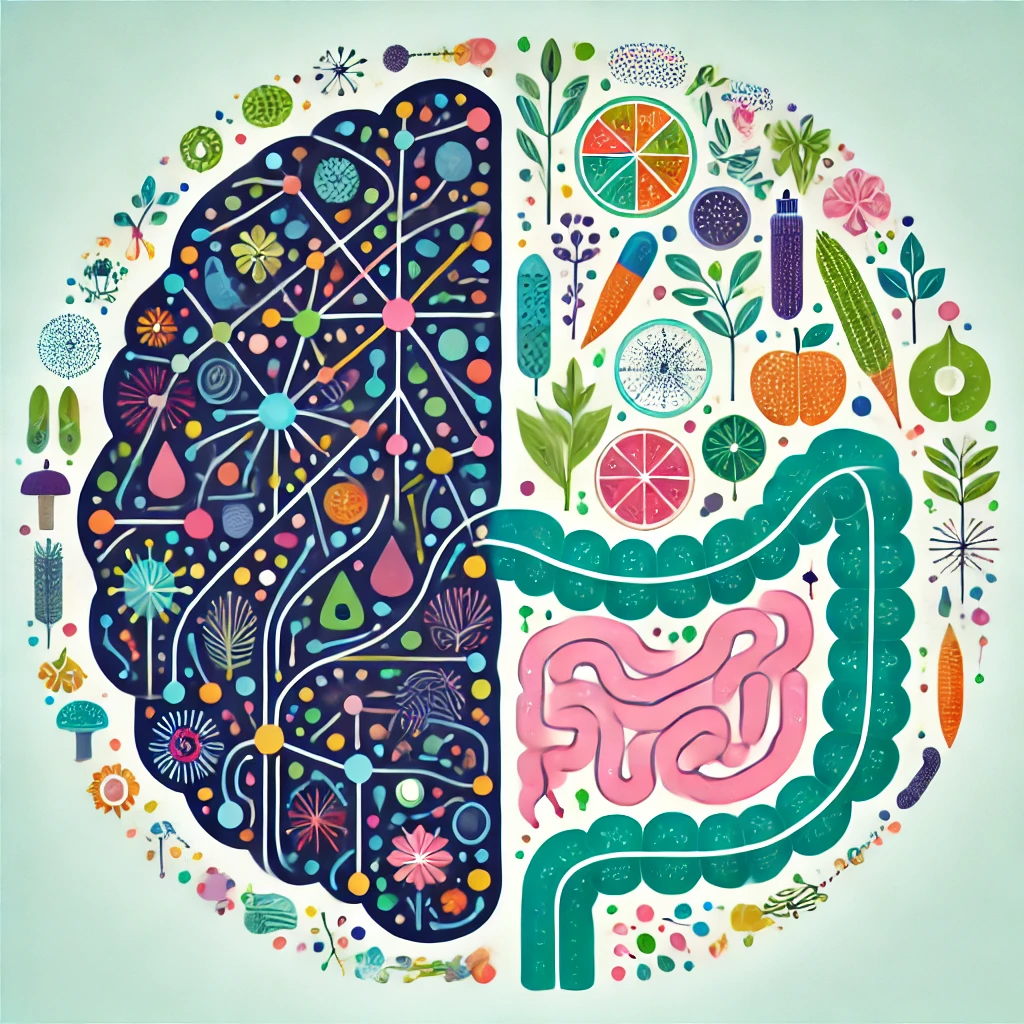
Autism spectrum disorder is a disorder (ASD ) that influences normal brain development, and it affects 1 in 55 children in the US. Kids with Autism were found to have a unique, premature, and smaller size gut than other children who don’t have this disorder.
There are several causes, including genetics and environmental factors. Nutritional deficiencies, viral infections, developmental issues during embryonic stages, immune dysfunction, and allergies
Many researchers agree that genetic and environmental factors combined can be the culprit. This makes each autistic child have unique symptoms, making it more difficult to pinpoint the exact cause of autism.
My main focus in this article will be how diet/nutrition, microbiota, and gut health can lead to autism in children.
That said, there is hope for these children to improve and have a better quality of life. Some evidence suggests that a healthy gut microbiome is the answer.
How does the gut microbiome affect Autism?
So, let’s dive into how the gut microbiome is linked to autism. Many studies have found that children with autism have more tummy trouble than their peers.
For instance, in one study done in 2014, autistic children were four times more likely to have problems. Such as constipation, diarrhea, or abdominal discomfort are more common among this population Some Studies have indicated picky eating contributes to a deficiency of microbes in autistic kids’ guts.
Furthermore, a current study stated that changes to the microbiota makeup can cause dysbiosis. Also, it increases gut and neurological symptoms in autistic children. The relationship between the gut and the brain is a two-way street known as the gut-brain axis. They work together via the vagus nerve (the largest nerve in the body), relaying communication between the gut and brain. Thus, when one of them runs into trouble the other is affected.
How Does Bifidobacteria Affect The Brain Function Of Autism?
Bifidobacteria help secrete short fatty acids, which assist in the production of neurotransmitters. A lack of Bifidobacteria can increase the likelihood of a negative impact on gut and brain development.
Does Leaky gut cause autism?
Inflammation and intestinal permeability occur when unwanted substances, e.g., food particles and pathogens, cross the gut barrier. Leaky gut). Leading to inflammation that contributes to inflammation in the blood-brain barrier. As a leaky gut damages the digestive system, nerve signals are passed to the brain. These impact the function of the brain in a negative way. So, a leaky gut can increase the symptoms of autism.
Is autism linked to the mother’s gut bacteria?
The gut microbiota of a child is influenced by the gut bacteria of the mother starting from pregnancy. Many facts show bacteria colonizing the womb, placenta, and amnionic fluid during the prenatal phase.
In a study of mice with two different strains, one had a healthy microbiome, and the other had an unhealthy gut. Researchers noted the protective microbiome of the first mouse was lost after a fecal transplant. The study has provided evidence of ASD (making the protective mouse unprotected anymore. Thus, the research concludes that the mother’s gut microbiome plays an important role in regulating and helping to form the gut of ASD.
Another research done in 2019 where healthy mice were injected with microbes from an autistic child resulted in the mice exhibiting autistic behaviors.
This was compared to a study performed on non-autistic humans, which didn’t show any changes in behavior after the transplant. This was suggested by the researchers on how the gut microbiota plays a role in the development of ASD.
Other factors that can contribute to autism are the method of delivery. If there was antibiotic use during child delivery. How long the baby was breastfed determines the composition of the gut microbiome.
What foods are linked to autism?
Yes, there are foods linked to ASD. Here are the major foods to avoid that make autism worse when consumed: the food we eat can be a fuel for the body or poison.
- DAIRY

The protein (casein in the dairy) causes brain fog, inability to focus, spaciousness, numbness to pain, and a host of other issues. Dairy has been one of the biggies that’s a problematic food that is considered pro-inflammatory. As shown by a 2018 study on Pharmaceuticals. As inflammation is a key factor that plays a role in ASD and is linked to immune system dysfunction.
Eliminating dairy from autistic individuals’ diets has shown great improvements. Better communication, less hyperactivity, and resolved bowel issues were noted in the study.
2. GLUTEN

The proteins are found in grains like wheat, barley, rye, etc., and they cause systemic inflammation. This creates antibodies that can inflame the brain. It also messes up your gut bacteria, contributing to anxiety, depression, stress, and autism.
The cerebellum is an area of the brain that is attacked. It is where motor and thought coordination takes place, which is necessary for processing complex information. Autistic children already have a compromised cerebellum, so ingestion of food with gluten can make their brains go haywire.
Many parents have seen great improvements in their autistic children after the consumption of gluten-free foods.
3. CORN

Several research, including a 2013 study, have proven the link between an increase—risk of autism and exposure to the herbicide glyphosate. Besides, corn has Omega 6 fatty acids, which are unhealthy. They are known to cause inflammation compared to Omega 3 fatty acids, which are anti-inflammatory.
4. SUGAR

Sugar has pro-inflammatory properties. It is very addictive. Some researchers say sugar is more dangerous than cocaine because of its addictive effect. Studies have shown that autistic children have dysregulated blood sugar because of dysbiosis. As a result, scientists discovered a lack of enough enzymes and transporters to digest sugars.
5. ARTIFICIAL INGRIDIENTS
An increased spike in ASD has contributed to food additives, as indicated by a study performed in 2019. These additives are found in processed foods. These artificial ingredients include preservatives, additives, and artificial sweeteners and flavors. Although these are not real food, they are in most food products.
It is imperative to investigate what foods are triggering your child’s autism and cut any triggers for one month. Foods that can start the cascade of symptoms are dairy, gluten, sugar, corn, artificial flavors, colors, and sweeteners. Then, add them back one by one to see which food is triggering their symptoms.
How Do You Improve An Autistic Gut Microbiome?
There is no magic bullet way to improve gut health for autism, but restoring gut health is one of the most important ways to help autistic children. Under the supervision of your healthcare provider, start small by supplementing with digestive enzymes and probiotics. These will increase gut bacteria and the absorption of nutrients. Researchers have proven positive results after taking these measures.

In summary
The takeaway from the article is that we know the gut microbiome plays a vital role in human gut health and brain development. It definitely influences intellectual ability. We have learned that some bacteria produce chemicals that act as neurotransmitters and hormones that affect brain function.
We also know that a lack of gut microbiome sends the brain into a downward spiral that impairs neuropathways. This is prevalent among individuals with developmental issues.
Research has shown many improvements in the neurological symptoms of autistic children. Supplementing them with digestive enzymes and probiotics shows promising positive results.
Thus, increased digestion and absorption promote gut, immune, and brain health.
Finally, throughout this article, we have seen the role played by the gut microbiome in developing neurological disorders such as autism.
References
- Underdevelopment of the gut microbiota and bacteria species as non-invasive markers of prediction in children with autism spectrum disorder | Gut (bmj.com)
- Role of Gut Microbiome in Autism Spectrum Disorder and Its Therapeutic Regulation – PMC (nih.gov)
- https://www.ncbi.nlm.nih.gov/pmc/articles/PMC3041077
- Human gucolonizationon may be initiated in utero by distinct microbial communities in the placenta and amniotic fluid – PMC (nih.gov)
- https://www.sciencedirect.com/science/article/pii/S0092867419305021
- https://pubmed.ncbi.nlm.nih.gov/33268567/#:~:text=More importantly, gut bacteria shared,development of autism spectrum disorder.
- Inflammation and Neuro-Immune Dysregulations in Autism Spectrum Disorders – PMC (nih.gov)
- https://pubmed.ncbi.nlm.nih.gov/21949732/
- Propionic Acid Induces Gliosis and Neuro-inflammation through Modulation of PTEN/AKT Pathway in Autism Spectrum Disorder | Scientific Reports (nature.com)

